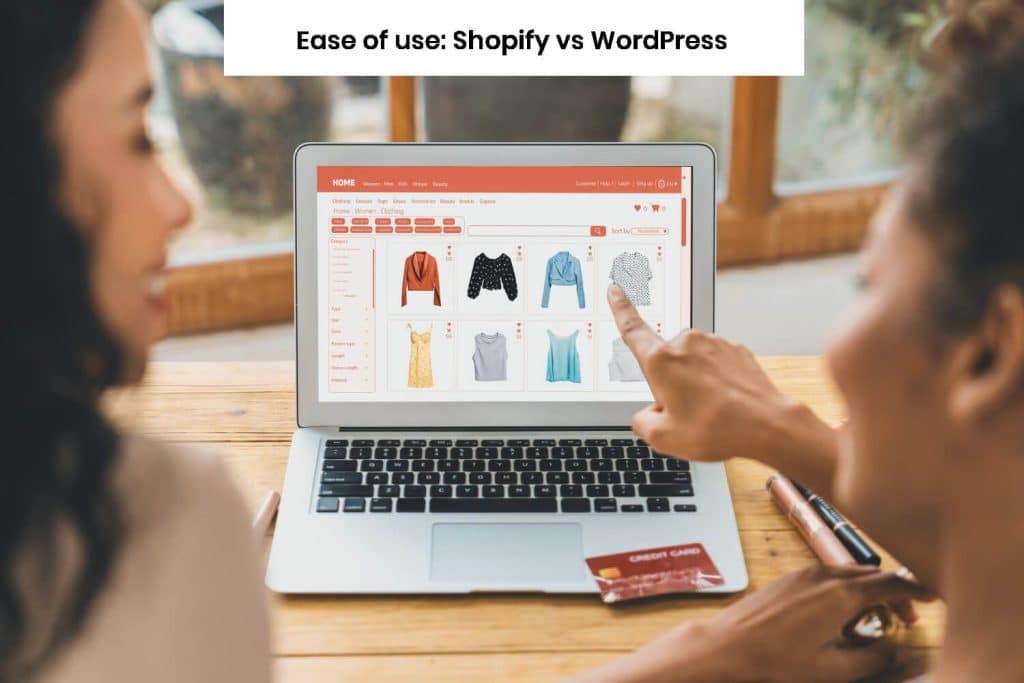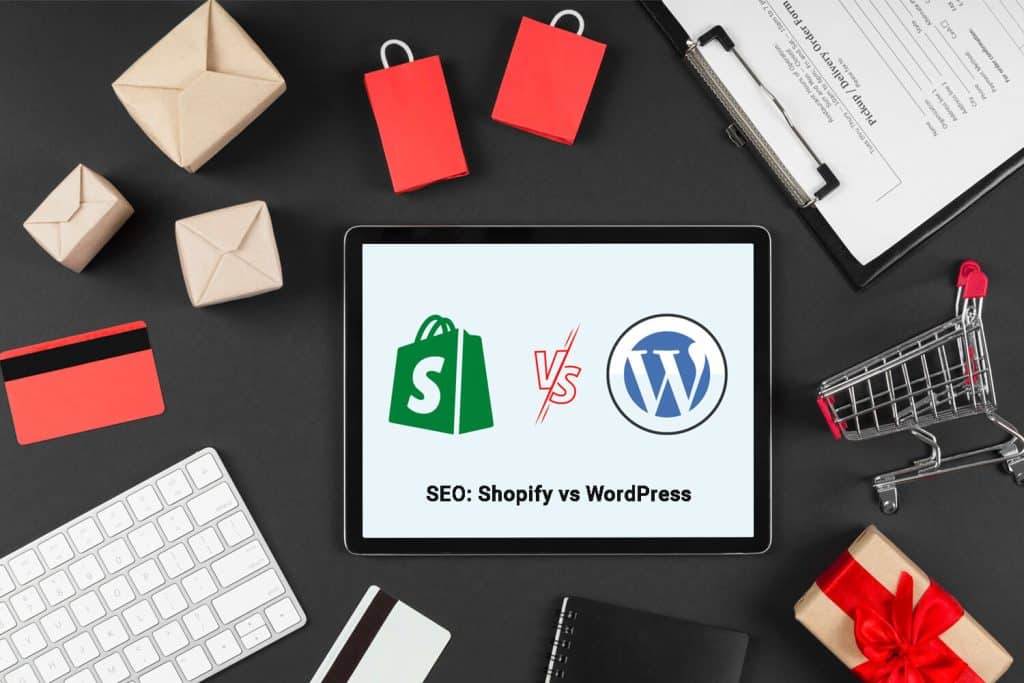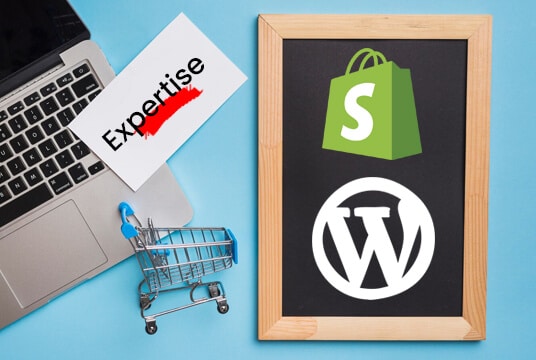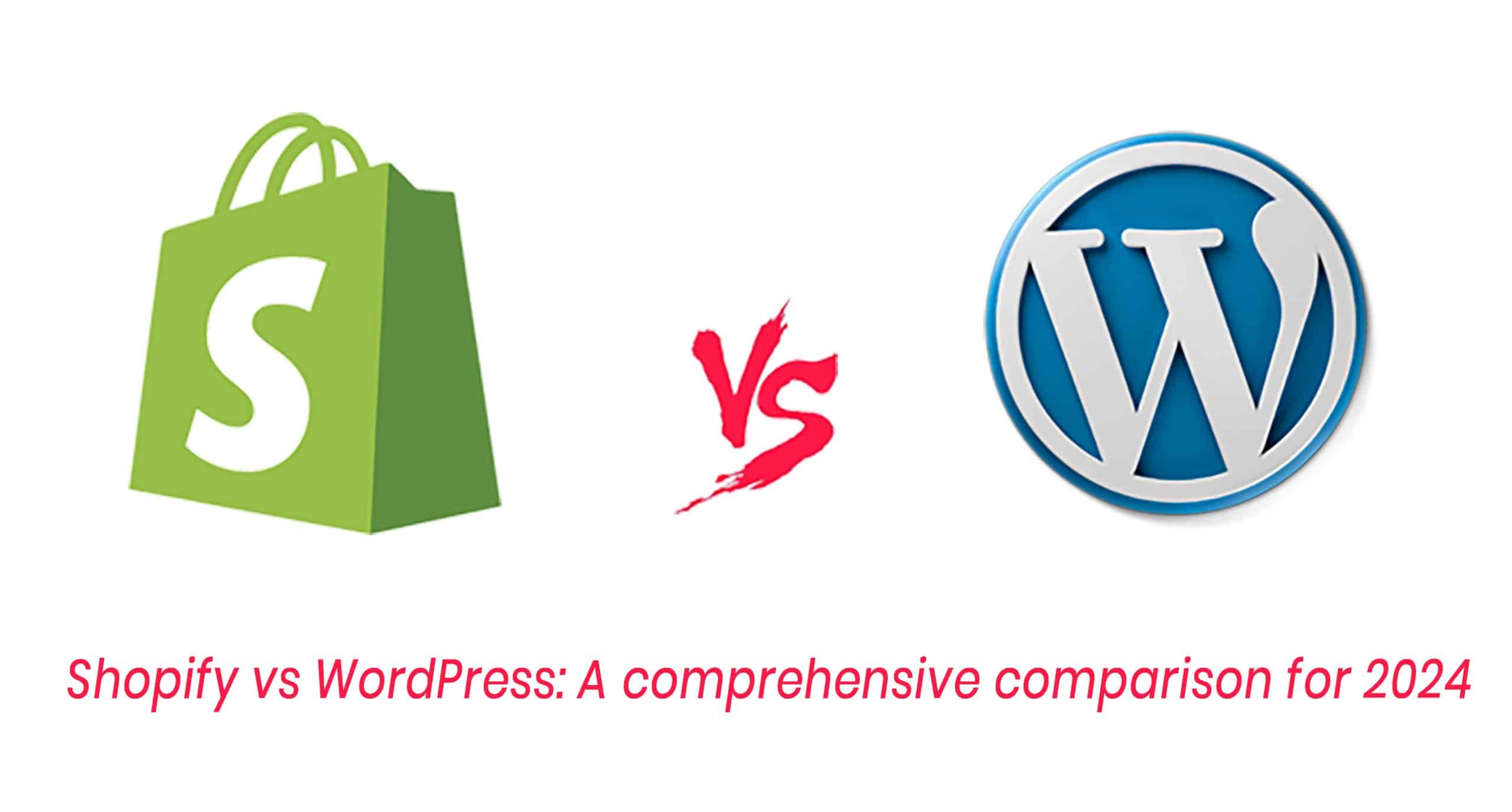Choosing the right eCommerce platform can make or break your online business. As two of the most popular options on the market, Shopify and WordPress (with WooCommerce) offer distinct advantages and trade-offs. This detailed comparison will explore each platform’s features, ease of use, customisation, costs, eCommerce capabilities, SEO, support, security, and performance. We’ll introduce Web Design Owl as an expert in Shopify and WordPress web design for businesses in Melbourne looking for an expert web design company.
Comprehensive guide to Shopify
Key features and benefits

Ideal business types and sizes for Shopify
Comprehensive guide to WordPress
Key features and benefits
- Flexibility: Highly customisable with thousands of plugins and themes.
- Content management: Excellent for businesses that want to focus on content marketing.
- Open-source: Offers complete control over your site.

Ideal business types and sizes for WordPress

Ease of use: Shopify vs WordPress
Shopify: User-friendly interface, setup process, and management
WordPress: Learning curve, flexibility, and ease of management with WooCommerce

Customisation capabilities: Shopify vs WordPress
Shopify: Themes, customisation options, and limitations


WordPress: Themes, plugins, and extensive customisation capabilities
WordPress stands out in the realm of customisation. It boasts thousands of free and premium themes, catering to virtually every type of website and design preference. Beyond themes, WordPress offers an extensive range of plugins that add functionality, from simple design tweaks to complex eCommerce features. The platform’s open-source nature allows users to add custom code directly to their site, providing unmatched flexibility and control over every aspect of design and functionality. This makes WordPress an ideal choice for users who want the ability to tailor their website precisely to their needs and are willing to manage the complexities that come with such extensive customisation capabilities.
Cost: Shopify vs WordPress
Shopify: Subscription plans, transaction fees, and additional costs
WordPress: Initial setup costs, hosting fees, and cost of premium plugins and themes
E-commerce capabilities: Shopify vs WordPress
Shopify: Built-in eCommerce features, App integrations, and sales tools
WordPress: WooCommerce features, plugin integrations, and eCommerce capabilities
SEO: Shopify vs WordPress
Shopify: Built-in SEO tools and limitations


WordPress: SEO plugins, flexibility, and advanced SEO capabilities
WordPress excels in SEO due to its flexibility and the availability of powerful SEO plugins like Yoast SEO and All in One SEO Pack. These plugins offer comprehensive SEO tools, including advanced features like XML sitemaps, breadcrumb navigation, and in-depth content analysis. WordPress’s open-source nature allows for extensive customisation, enabling users to implement various SEO strategies tailored to their needs. WordPress themes are often designed with SEO best practices in mind, and the platform’s structure supports clean, SEO-friendly URLs. This combination of flexibility and advanced tools makes WordPress a preferred choice for those seeking to maximise their site’s search engine visibility through detailed and customisable SEO practices.
Support: Shopify vs WordPress
Shopify: Customer support, resources, and community assistance
WordPress: Community support, forums, professional help, and resources
Security: Shopify vs WordPress
Shopify: Built-in security features, SSL, and PCI compliance
WordPress: Security plugins, best practices, and additional security measures
WordPress offers a flexible security environment but requires proactive management from site owners. To enhance security, users can install various security plugins such as Wordfence, Sucuri, and iThemes Security, which provide features like malware scanning, firewall protection, and login security. Following best practices is essential, including keeping the WordPress core, themes, and plugins up to date to protect against vulnerabilities. Regular backups, strong passwords, and limiting login attempts are additional measures that can improve security. While WordPress doesn’t have built-in PCI compliance, integrating secure payment gateways can help meet those standards. With the right combination of plugins and practices, WordPress sites can be highly secure, but they require ongoing attention from the site owner.
Performance: Shopify vs WordPress
Shopify: Performance optimisation, hosting, and reliability
WordPress: Performance considerations, hosting options, and optimisation techniques
Performance on WordPress depends mainly on the hosting provider and the optimisations implemented by the site owner. Unlike Shopify, WordPress requires users to choose their hosting, with options ranging from shared hosting to dedicated servers and managed WordPress hosting. The right hosting choice can significantly impact site speed and reliability. To enhance performance, WordPress users can employ various optimisation techniques, such as caching plugins (e.g., W3 Total Cache, WP Super Cache), image optimisation tools, and content delivery networks (CDNs) like Cloudflare. Additionally, optimising the database and minimising resource-intensive plugins can improve site speed. While WordPress offers more flexibility in performance tuning, it requires a proactive approach to achieve and maintain optimal performance levels.
Web Design Owl specialises in both Shopify and WordPress web design and offers tailored solutions accordingly to meet the unique needs of Melbourne businesses.
Expertise in both Shopify and WordPress
With deep expertise in both platforms, Web Design Owl can help you choose and implement the right eCommerce solution for your business. Whether you need a quick and easy setup with Shopify or a highly customised solution with WordPress, they have the skills and experience to deliver.
Web Design Owl offers services from initial consultation to full-scale implementation and ongoing support. They understand the local market and can provide insights and strategies tailored to Melbourne’s unique business landscape.
Both Shopify and WordPress have their strengths and are suited to different business needs. Shopify offers a user-friendly, all-in-one solution for small to medium-sized businesses looking for simplicity and scalability. WordPress with WooCommerce, on the other hand, provides extensive customisation capabilities, making it perfect for businesses requiring flexibility and control.
For Melbourne businesses seeking professional web design services, Web Design Owl is a trusted expert in both platforms. They can guide you through decision-making and ensure your eCommerce site is perfectly tailored to your needs.
Ready to take your eCommerce business to the next level? Contact Web Design Owl today for a consultation and discover the perfect platform for your business!

frequently asked questions
How can Web Design Owl help with my eCommerce platform choice?
Web Design Owl specialises in both Shopify and WordPress web designing and offers tailored solutions to meet the unique needs of Melbourne businesses. They provide expert consultation, implementation, and ongoing support to help you choose and optimise the right eCommerce platform for your business.
What are the main differences between Shopify and WordPress (with WooCommerce)?
Shopify is an all-in-one, hosted eCommerce platform designed for ease of use and scalability, suitable for businesses of all sizes. WordPress, when paired with WooCommerce, offers extensive customisation and flexibility, ideal for those who need more control over their site’s design and functionality.
Which platform is easier to use, Shopify or WordPress?
Shopify is generally easier to use with its user-friendly interface and guided setup process, making it ideal for non-tech-savvy users. WordPress, while more flexible, has a steeper learning curve and requires more technical know-how to manage.
What are the cost considerations for Shopify and WordPress?
Shopify operates on a subscription model with additional transaction fees and costs for premium themes and apps. WordPress is free, but costs include hosting, premium themes, and plugins. Shopify may have higher ongoing costs, while WordPress requires an upfront investment for flexibility.

